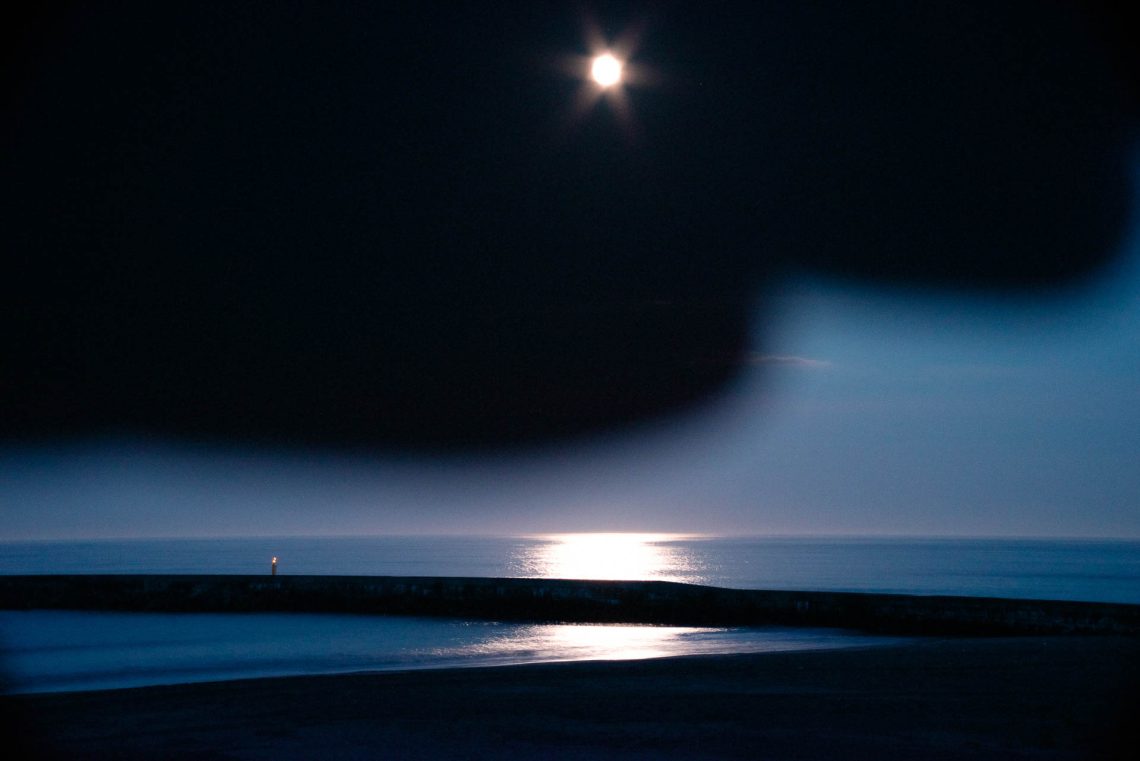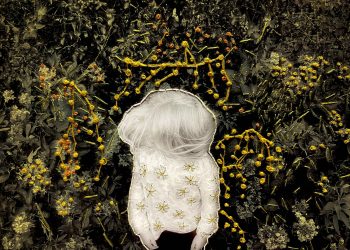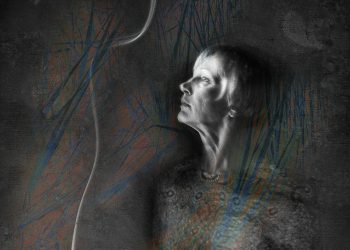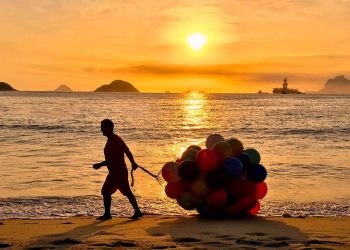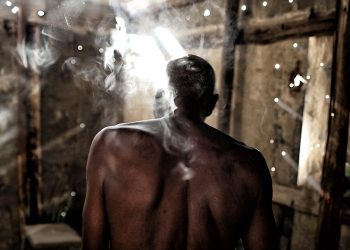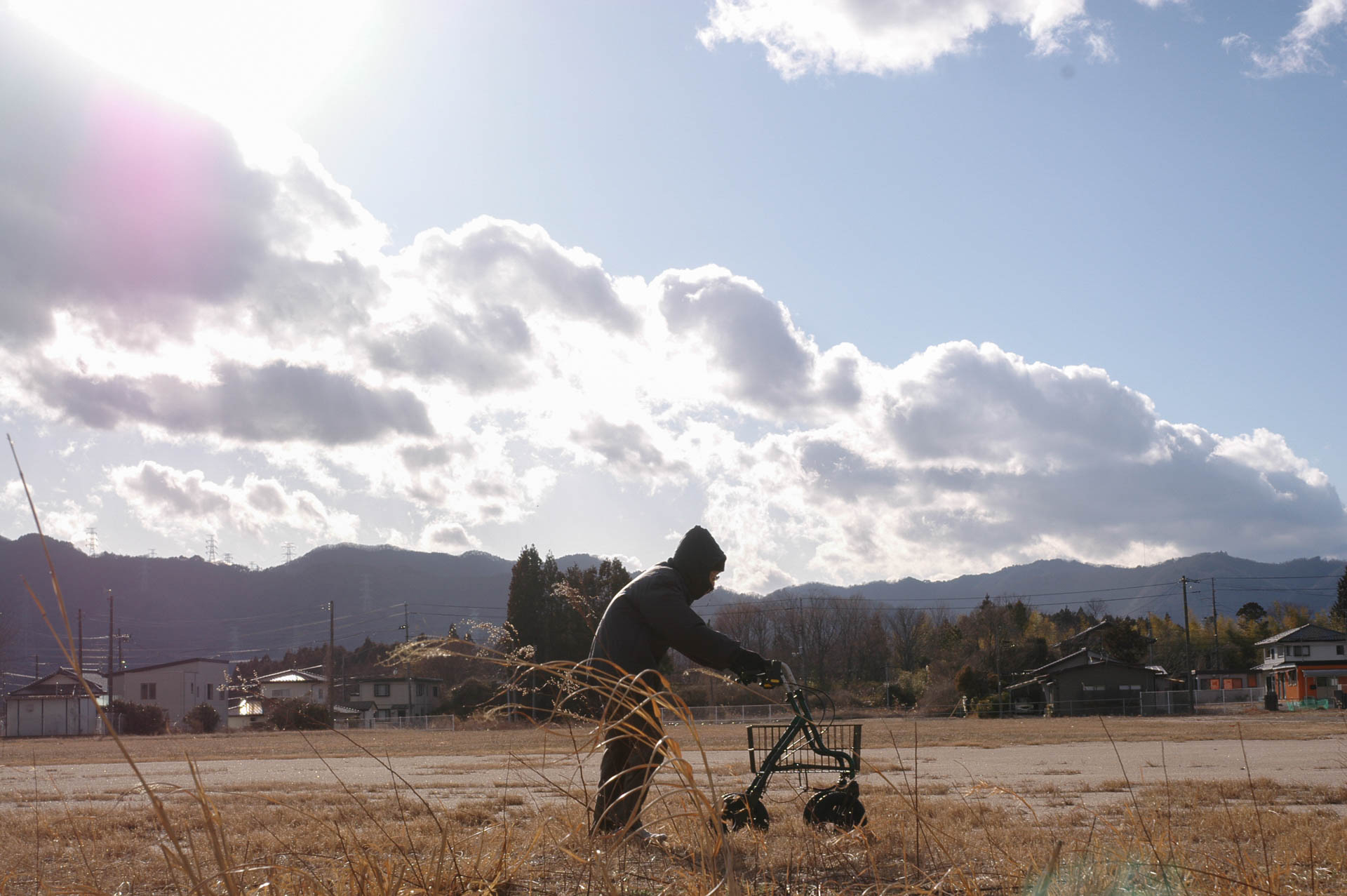
This area is being redeveloped by a private developer.
It is now off-limits to the public, but she still takes walks here regularly. Sometimes, residents say, “This town is our home.” – Image from the Portfolio I Thought the Sea Always Smelled the Same, by Kazuki Takeshita, finalist of the FotoDoc Photo Contest 2025
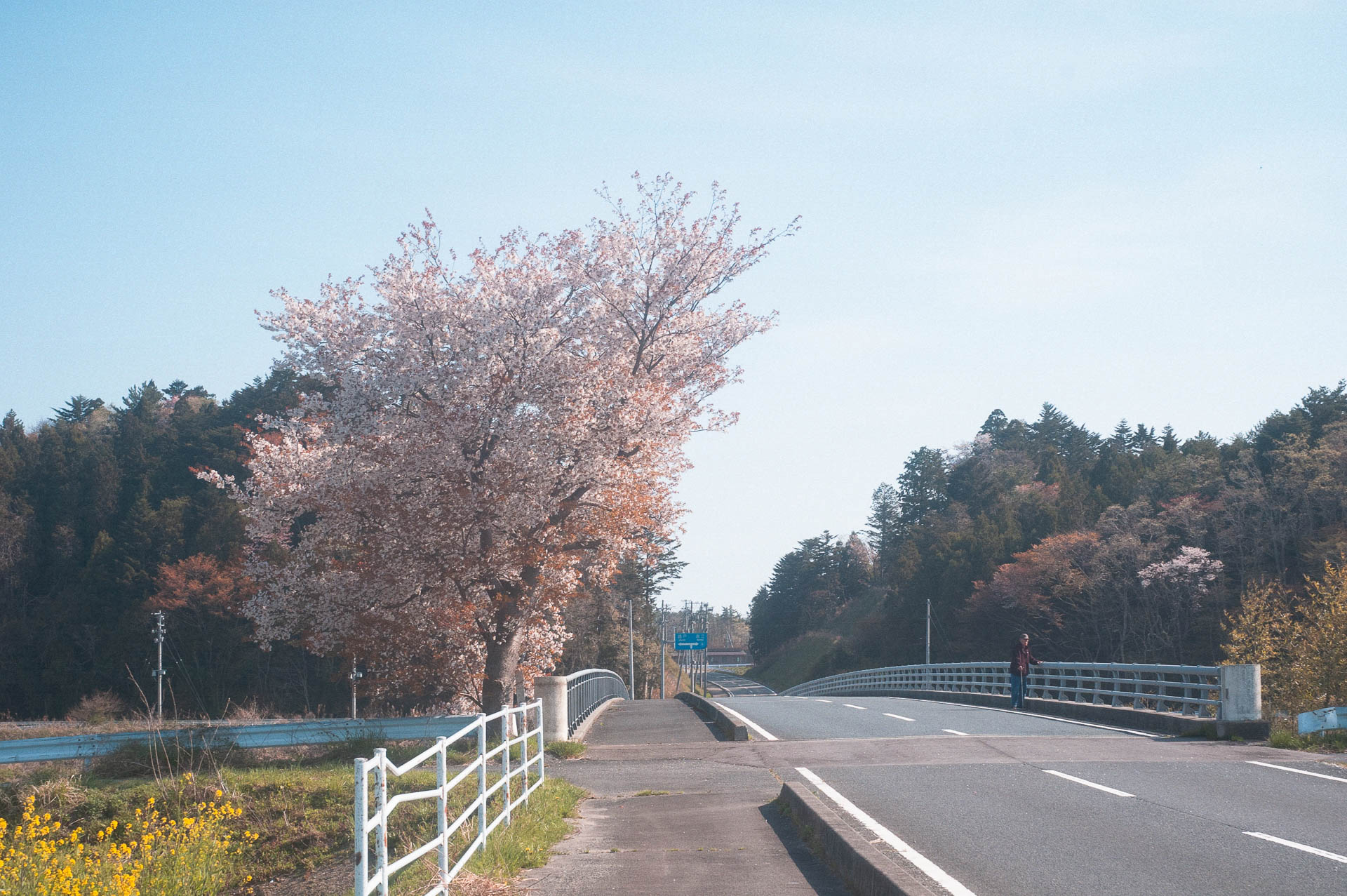
This old man comes to see the cherry tree every spring, walking with his cane. It was planted when he was still a child.
Back then, he thought planting it was no fun at all. – Image from the Portfolio I Thought the Sea Always Smelled the Same, by Kazuki Takeshita, finalist of the FotoDoc Photo Contest 2025
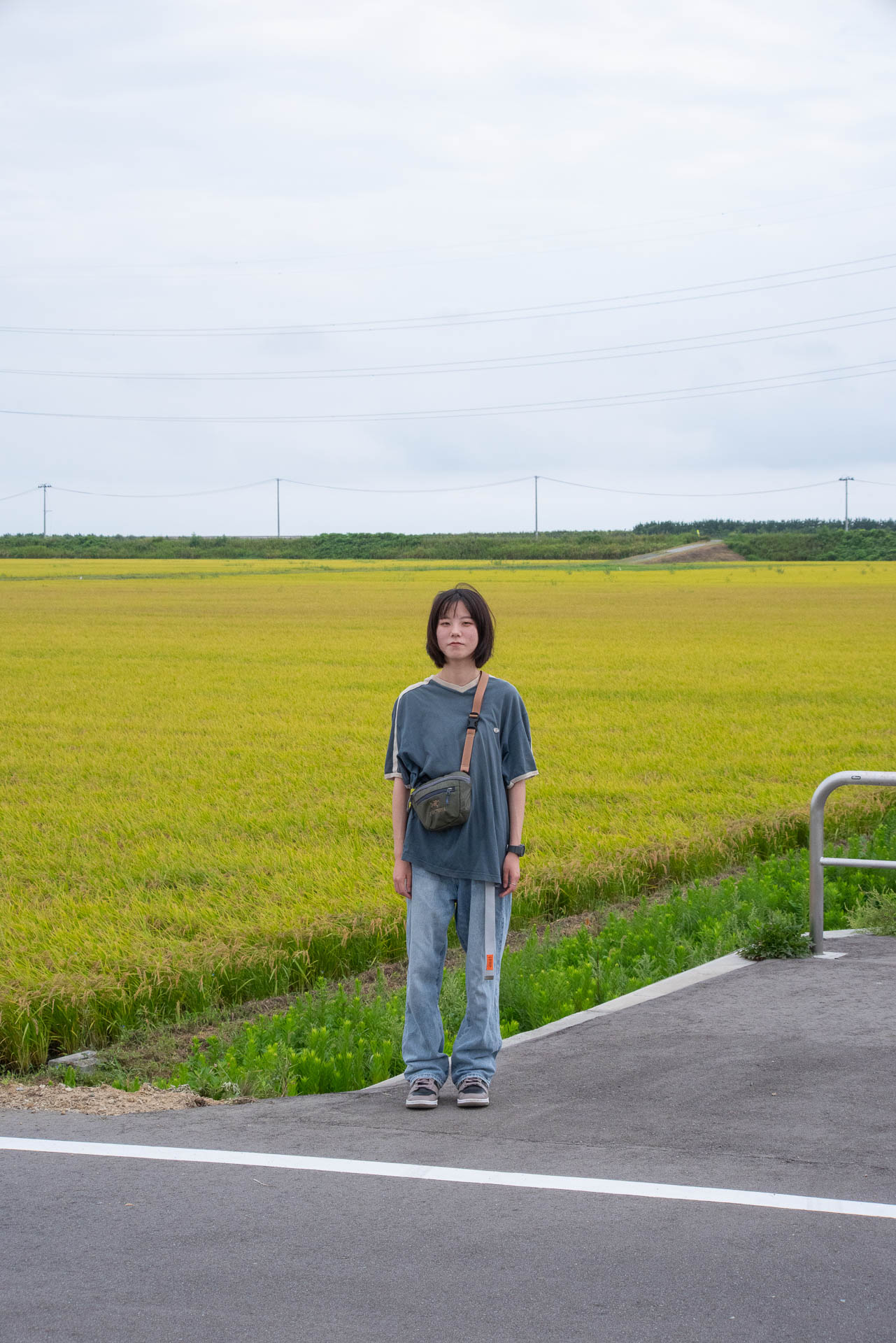
I asked her, “What places hold a special place in your heart?”
She took me to her grandparents’ house.
All I could see was the horizon.
The house was lost in the 2011 disaster, and the area has since been transformed by redevelopment.
She said, “When I’m older, I’ll probably forget them.” – Image from the Portfolio I Thought the Sea Always Smelled the Same, by Kazuki Takeshita, finalist of the FotoDoc Photo Contest 2025
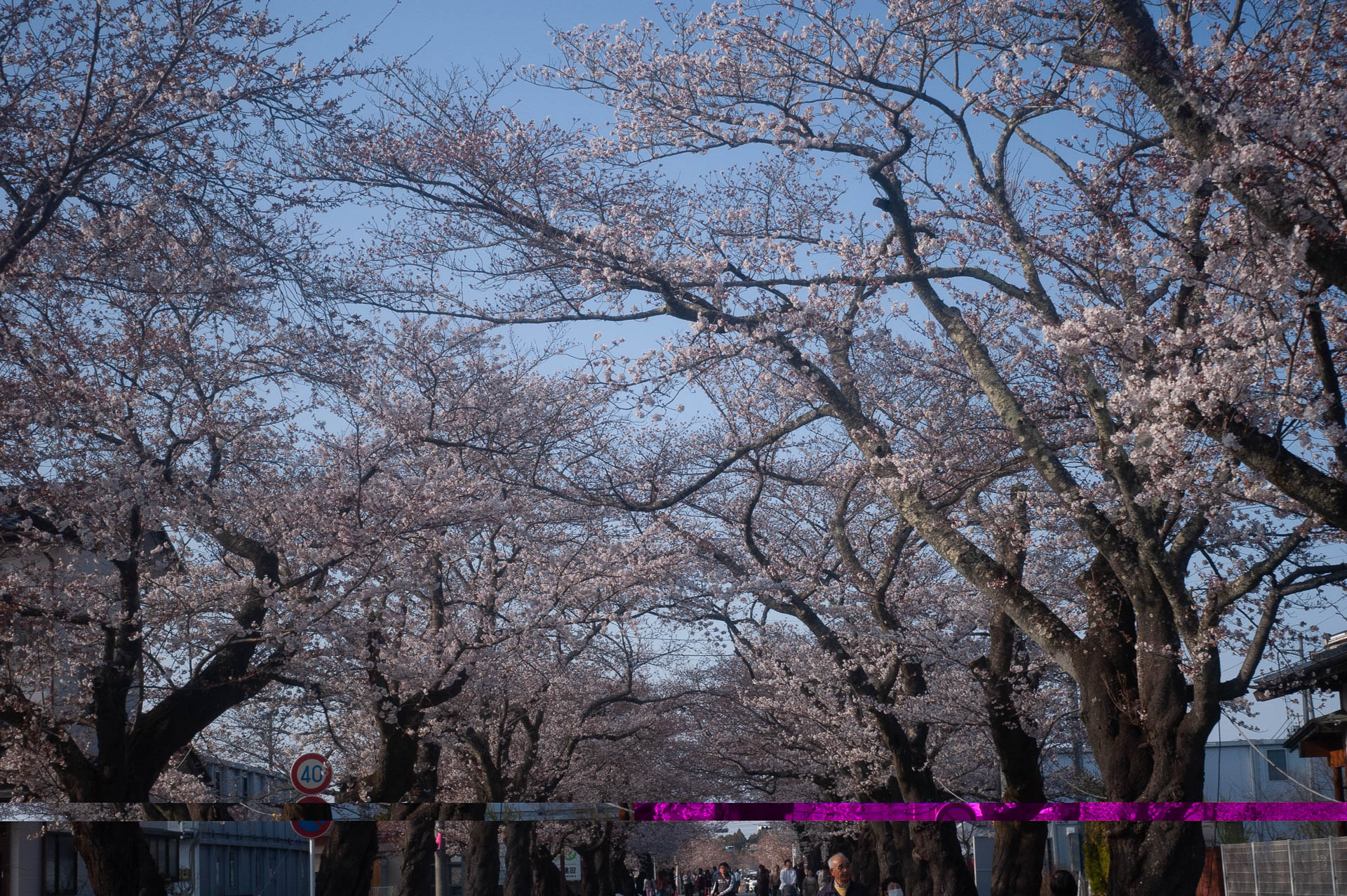
In a town where radioactive decontamination had been completed, the cherry trees came into full bloom.
They were stunning—but I couldn’t stop thinking of something a local resident once said: “The most beautiful cherry blossoms were the ones that bloomed when no one was here, before the decontamination was finished.”
I will never be able to see those blossoms he remembers.
In the photo I took, a single pink line of digital noise—caused by a camera sensor malfunction —ran straight from right to left across the image.
That line seemed to reflect the dissonance between the landscape we see now and the one preserved in people’s memories. – Image from the Portfolio I Thought the Sea Always Smelled the Same, by Kazuki Takeshita, finalist of the FotoDoc Photo Contest 2025
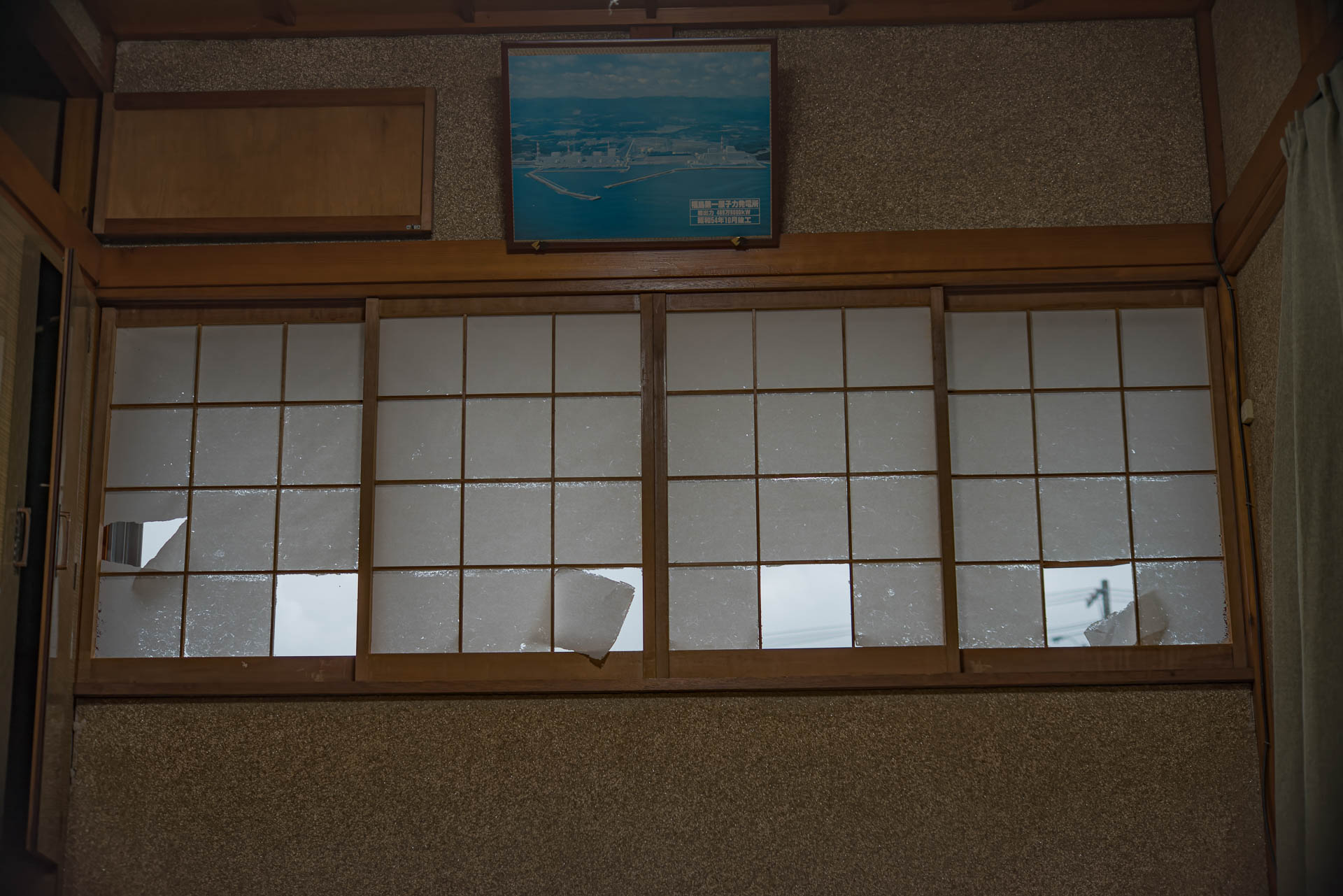
The owner of this house once worked for a company connected to the electric utility. In many Japanese homes, it is customary to display portraits of ancestors.
Here, alongside them, hung a framed aerial photograph of the Fukushima Daiichi Nuclear Power Plant.
From the 1970s through the 1980s, nuclear power was seen as a symbol of hope and modernity.
For many in the town, the plant was a familiar and even cherished presence. – Image from the Portfolio I Thought the Sea Always Smelled the Same, by Kazuki Takeshita, finalist of the FotoDoc Photo Contest 2025
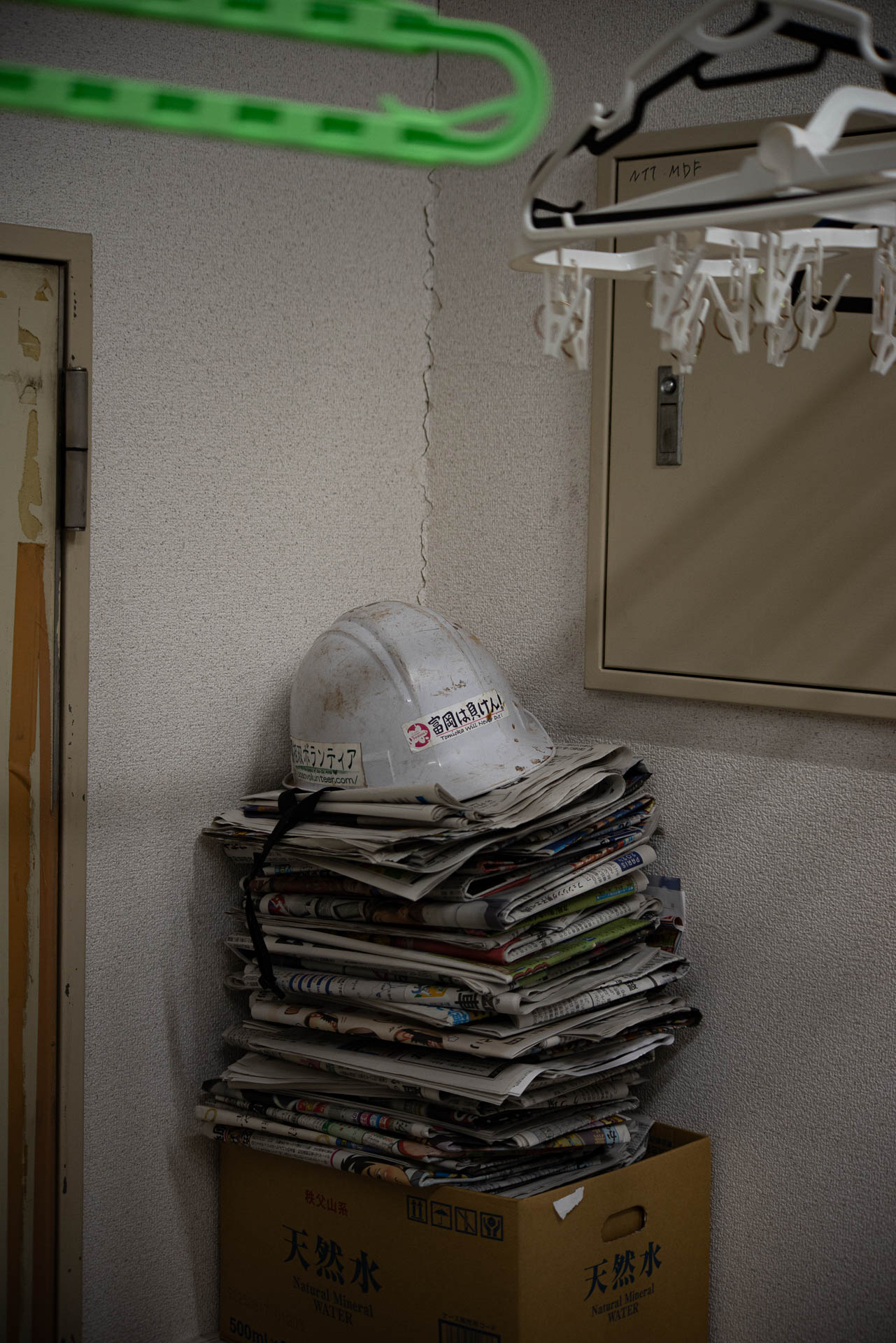
When this town was contaminated with radioactive fallout and much of the world had given up on Fukushima’s recovery, a few held on to hope.
Dressed in protective suits and helmets, they returned to the abandoned streets—not for money, but to rebuild.
They were heroes in a time when ordinary life had collapsed.
But after the decontamination ended, what was needed changed:
not courage, but capability—running a business, managing employees, raising a family. Such “normal” skills are hard to come by in a town long dependent on the nuclear industry.
Now, a helmet—once worn like a badge of honor—sits unused in the corner of an office, quietly watching a new era unfold. – Image from the Portfolio I Thought the Sea Always Smelled the Same, by Kazuki Takeshita, finalist of the FotoDoc Photo Contest 2025
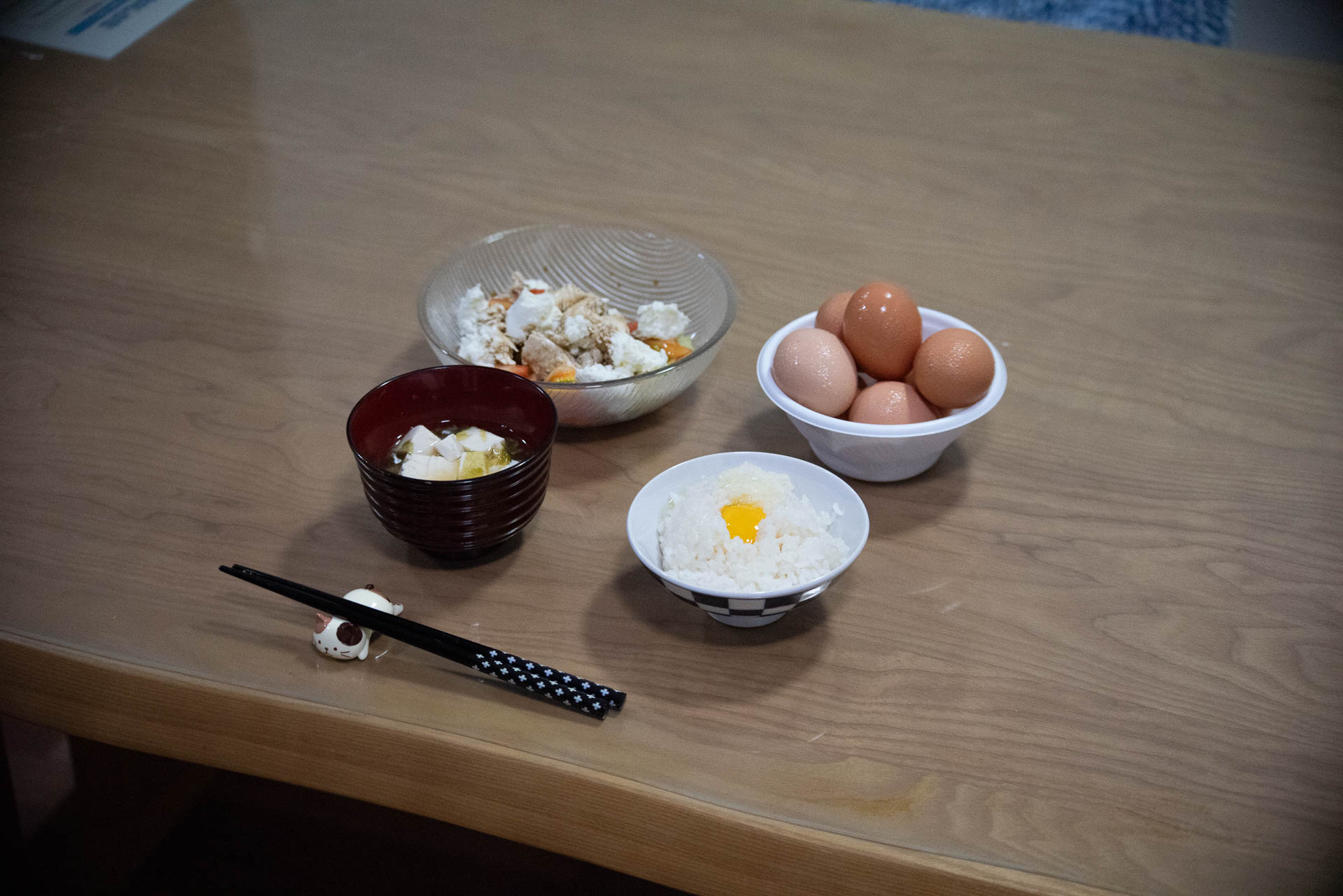
One day, I met a consultant known for pushing through redevelopment projects with little regard for public sentiment—projects funded by government subsidies.
He gave me a box of luxury eggs from a well-known brand, something far beyond my usual means.
I disliked him, but I ate the eggs.
It’s hard to raise your voice against someone after receiving a gift. That’s how I, too, found myself being quietly tamed.
Maybe it’s not just me—maybe we all are. – Image from the Portfolio I Thought the Sea Always Smelled the Same, by Kazuki Takeshita, finalist of the FotoDoc Photo Contest 2025
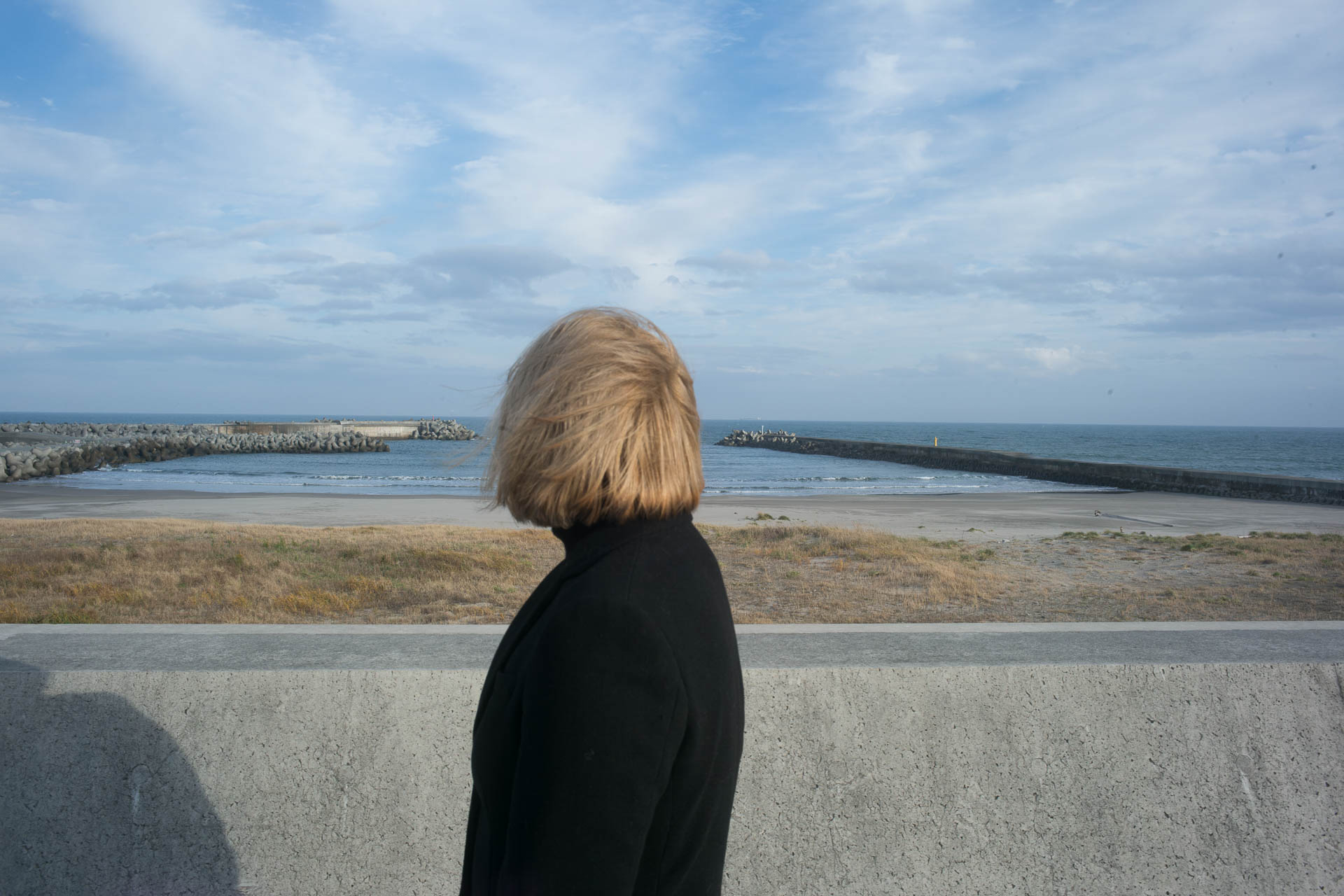
She’s a designer. After working in Tokyo, she returned to her hometown around the time the decontamination ended.
On this day, she took me to the beach where she used to play as a child.
She told me how she once nearly drowned there—until a kind older boy from the neighborhood jumped in and saved her.
After the 2011 earthquake and nuclear accident, all the houses in this coastal area were wiped away.
The residents scattered, evacuated to different places. No one seems to know exactly where anyone ended up.
“I wonder where the boy who saved me went,” she murmured.
What she lost wasn’t just a home—it was the gentle fabric of everyday life, and the people who once filled it. – Image from the Portfolio I Thought the Sea Always Smelled the Same, by Kazuki Takeshita, finalist of the FotoDoc Photo Contest 2025
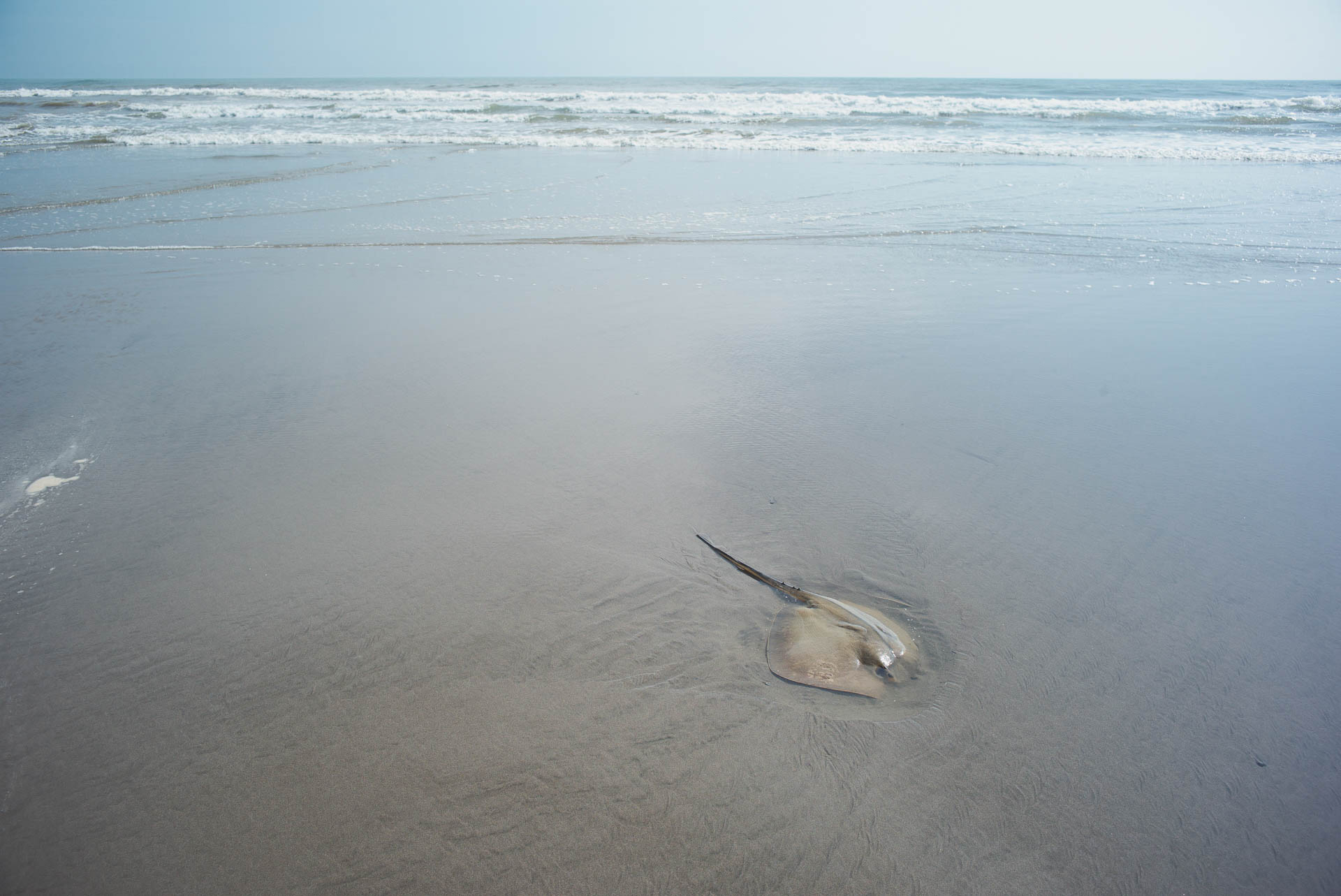
An elderly woman once shared a memory with me.
“When I was a little girl, my mother took me to the sea. I remember watching a ray swim gently along the surface of the water.”
It was long before the nuclear power plant was ever built here.
After the accident, she was forced to leave her hometown and move from one unfamiliar place to another. She never truly felt at home again and struggled to find work.
Hoping to spend her final years in the land she loved, she returned to Fukushima after the decontamination was completed.
The day after hearing her story, I was walking along the beach when I came across a ray lying still by the shore. – Image from the Portfolio I Thought the Sea Always Smelled the Same, by Kazuki Takeshita, finalist of the FotoDoc Photo Contest 2025



